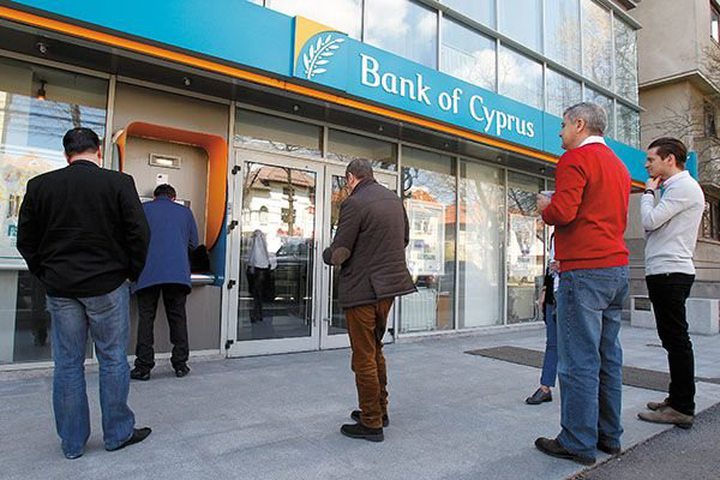Is Cyprus More Important Than You Think?

First, the package for Cyprus remains vague pending analysis by the Troika—the European Union, the European Central Bank (ECB) and the International Monetary Fund (IMF). Based on press reports of rising losses for the Cypriot banks, the problems may be worse than imagined, requiring changes to the bailout or making it unworkable. The Church of Cyprus is contesting the legality of some measures taken under the European convention of human rights which makes the expropriation of property illegal. There is a risk of further legal challenges.
Second, as with Greece, the package may not work. As in Greece and Portugal, privatisation proceeds and the revenue from increased taxes may not reach targets. The bank restructuring plan may not raise sufficient funds. It will encourage remaining deposits to flee Cyprus if and when capital controls are eased, compounding the problems. As with Greece, there is a risk that Cyprus will need additional assistance.
The proposed restructuring effectively cripples the Cypriot banking industry, which is a major part of the economy and employs over 50 percent of workers. The transfer of losses to depositors and imposition of capital controls make it highly likely that activity will shift to other locations.
The crippled financial system as well as the effect of capital controls and uncertainty on tourism will mean, at best, a prolonged recession. Economic activity in Cyprus is expected to contract by between 15-25 percent over the next few years. Unemployment will also rise. This will make it impossible for Cyprus to meet targets and repay the bailout debt, necessitating further assistance and/or future debt restructuring.
Third, the guarantee of small depositors (up to 100,000 euros) is from the insolvent Cyprus government. EU bailout funds cannot be used to support the banking system, which urgently needs a capital infusion. Small depositors are also affected by “temporary” capital controls. Residents cannot withdraw more than 300 euros in cash per day. Local businesses have to limit transactions to 5,000 euros a day. So will credit card transactions. Travellers cannot take more than 1,000 euros in bank notes out of the country per trip.
Capital controls may need to be in place for a prolonged period. They are still in place in Iceland over five years after introduction. Small depositors’ cash remains trapped and at risk in any future restructurings.
Fourth, the EU’s “new” position towards bailouts, shifting losses onto shareholders, bondholders and depositors, is unworkable.
To date, European as well as the UK and US governments have protected all creditors, including subordinated bondholders of failed banks, to avoid the risk of contagion and triggering a wider financial crisis. Germany bailed out depositors in IKB. Similarly, the government did the same for major Dutch banks until the recent case of SNS. There have been minor exceptions in Denmark, Ireland, the UK and Spain.
Alternatives such as Cyprus leaving the Euro and restructuring its bank and sovereign debt were ignored to avoid losses to the ECB on its 9 billion to 10 billion exposure to Cypriot banks and to European banks on holdings of Cypriot government bonds.
As in previous European bailouts, the funding is mainly to be used to refinance existing debt owed mainly to European banks and investors. About 7.5 billion euros of the proposed Cyprus package will be applied in this way.
Whatever its merits, allocating losses to investors and bondholders may prove challenging in practice.
European banks own 692 billion euros of Spanish government bonds and 832 billion euros of Italian government bonds. They also still own 791 billion euros of Greek, Irish and Portuguese bonds. The ECB has purchased over 200 billion euros of European sovereign debt, primarily that of Italy and Spain, as well as lending over 1 trillion euros to European banks secured by sovereign bonds.
Any attempt to write down bank or sovereign debt of troubled nations would result in large losses to European banks, mainly in the North European countries. The EU has conveniently forgotten that the bulk of Cypriot bank losses resulted from write-downs to loans to the Greek government, overseen by the EU.
Cyprus has merely highlighted Europe’s “doom loop” linking European banks and sovereigns. This will make it difficult to pursue the policy that investors must be accountable for the risk they take, recently articulated and then quickly disavowed by Jeroen Dijsselbloem, the President of the Eurogroup (an informal gathering of the finance ministers of the countries who use euro as their currency).





